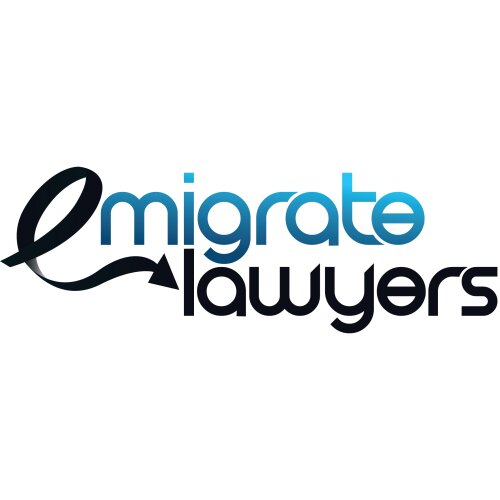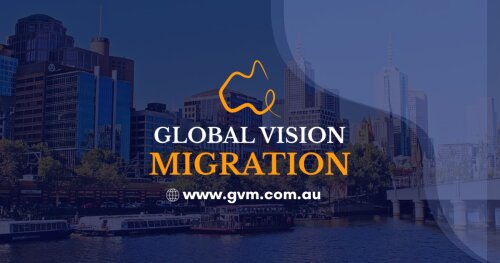Best Asylum Lawyers in Melbourne
Share your needs with us, get contacted by law firms.
Free. Takes 2 min.
List of the best lawyers in Melbourne, Australia
About Asylum Law in Melbourne, Australia
Asylum law in Melbourne, Australia, is a critical component of the country's broader immigration system, designed to offer protection to individuals fleeing persecution in their home countries. This system aligns with international obligations under the United Nations 1951 Refugee Convention. Individuals seeking asylum in Melbourne must demonstrate a well-founded fear of persecution based on race, religion, nationality, membership of a particular social group, or political opinion. The process involves legal assessments and is managed by the Department of Home Affairs, with the Refugee Review Tribunal handling appeals.
Why You May Need a Lawyer
Navigating the asylum process can be complex. There are several situations where professional legal assistance may be necessary, such as:
- Understanding the eligibility criteria for asylum in Australia and preparing a strong case.
- Assistance with filling out and submitting asylum applications and related documentation.
- Representation during interviews and hearings with immigration officials or tribunals.
- Challenging a negative decision by the Department of Home Affairs, requiring an appeal to the Refugee Review Tribunal.
- Guidance through the process of seeking judicial review if your case involves legal errors.
Local Laws Overview
Melbourne, like the rest of Australia, follows federal laws regarding asylum, reflected primarily in the Migration Act 1958. Key aspects of these laws include:
- Protection Visas: These visas allow asylum seekers to live in Australia if they meet the refugee or complementary protection criteria.
- Temporary Protection Visas (TPV) and Safe Haven Enterprise Visas (SHEV): These are options for individuals who arrive in Australia without a visa and are found to be in need of protection.
- Review and Appeals: The Refugee Review Tribunal can reassess decisions made by the Department of Home Affairs.
- Bridging Visas: Allow individuals to remain legally while their visa or protection claims are processed.
Frequently Asked Questions
What is the first step in applying for asylum in Melbourne?
The first step is to lodge a Protection Visa application, which you can do if you are in Australia and have not been refused a visa after any previous appeals.
How long does the asylum process typically take?
This can vary; initial applications could take months to be processed, and appeals can extend the process further. Compliance with process requirements tends to speed things up.
Can I work while my asylum application is being processed?
In many cases, asylum seekers can apply for work rights through a Bridging Visa E, but conditions can vary on a case-by-case basis.
What if my asylum application is rejected?
If rejected, you may be eligible to appeal the decision to the Refugee Review Tribunal. Legal advice is recommended to explore this option effectively.
Is legal aid available for asylum seekers?
Yes, several organizations, including specialized legal aid services, offer assistance to asylum seekers unable to afford private legal counsel.
Can family members be included in my asylum claim?
You can include immediate family members present in Australia in your application. Each member's need for protection will be individually assessed.
Do I have to attend an interview during the application process?
Yes, interviews are a crucial part of most asylum claims, allowing applicants to detail their circumstances and substantiate their claims for protection.
What happens if my appeal is unsuccessful?
An unsuccessful appeal could lead to deportation; however, further legal routes may be available, such as judicial review, but these require specialized legal advice.
Are there any restrictions on asylum seekers in Melbourne?
Particularly while your status is under review, you may face restrictions, including travel limitations and reporting obligations with the Department of Home Affairs.
What support is available to asylum seekers during the process?
Asylum seekers can access support services, including housing, health care, and financial assistance, while their claims are being processed.
Additional Resources
Several resources are available for asylum seekers needing legal assistance in Melbourne:
- Refugee Legal: A community legal center specializing in refugee and immigration law.
- Victoria Legal Aid: Provides free legal services in certain areas of law, including asylum.
- Asylum Seeker Resource Centre (ASRC): Offers support, including legal advice for asylum seekers.
- Department of Home Affairs: Official government body managing immigration and refugee protection.
Next Steps
If you need legal assistance regarding asylum in Melbourne:
- Consider contacting a legal aid organization or a specialized immigration lawyer to discuss your situation.
- Gather all necessary documents, including identity proofs and any available evidence supporting your asylum claim, to present to your legal advisor.
- Prepare to discuss all aspects of your case, including any previous visa or asylum attempts, to ensure your legal representative can offer comprehensive advice.
- Schedule an initial consultation to explore your options, potential costs, and relevant timelines with a legal expert.
Understanding the asylum process and obtaining professional legal assistance can significantly impact the outcome of your case. Take proactive steps to ensure you are informed and prepared at each stage of this journey.
Lawzana helps you find the best lawyers and law firms in Melbourne through a curated and pre-screened list of qualified legal professionals. Our platform offers rankings and detailed profiles of attorneys and law firms, allowing you to compare based on practice areas, including Asylum, experience, and client feedback.
Each profile includes a description of the firm's areas of practice, client reviews, team members and partners, year of establishment, spoken languages, office locations, contact information, social media presence, and any published articles or resources. Most firms on our platform speak English and are experienced in both local and international legal matters.
Get a quote from top-rated law firms in Melbourne, Australia — quickly, securely, and without unnecessary hassle.
Disclaimer:
The information provided on this page is for general informational purposes only and does not constitute legal advice. While we strive to ensure the accuracy and relevance of the content, legal information may change over time, and interpretations of the law can vary. You should always consult with a qualified legal professional for advice specific to your situation.
We disclaim all liability for actions taken or not taken based on the content of this page. If you believe any information is incorrect or outdated, please contact us, and we will review and update it where appropriate.















